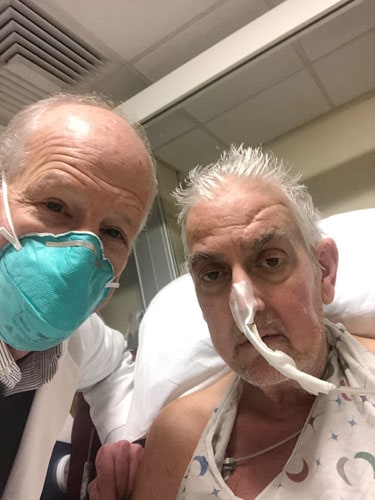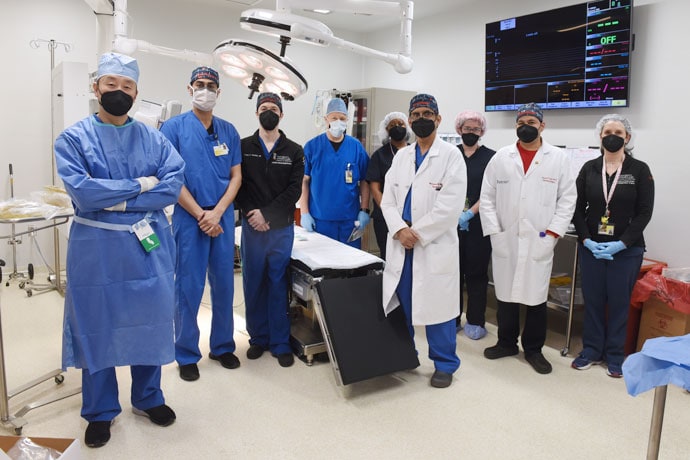A genetically modified pig heart was successfully transplanted into a 57-year-old man who had no other treatment options but was “fine” 3 days after the procedure, officials at the University of Maryland Medical Center (UMMC), Baltimore, said today.
“This organ transplant showed for the first time that a genetically modified animal heart can function like a human heart without the body rejecting it immediately,” they said.
First pig-to-human heart transplant.
Three genes associated with antibody-mediated rejection have been turned off in the pig that supplies the transplanted heart, and six human genes associated with the organ’s immune acceptance have been inserted into the pig’s genome according to a UMMC press release.
“Most recently, an extra gene was turned off in pigs to prevent overgrowth of pig heart tissue, resulting in a total of 10 unique gene edits made in donor pigs,” the press release said.
The patient, Maryland resident David Bennett, required mechanical circulatory support to stay alive but was turned down for a standard heart transplant at the UMMC and other centers. It was unsuitable for an implanted ventricular assist device due to ventricular arrhythmias.

Drs. Griffith and Bennett.
Bennett “will be closely monitored over the next few days and weeks to see if the transplant offers life-saving benefits,” the announcement said.
“We are proceeding cautiously, but we are also optimistic that this first operation in the world will offer patients an important new option in the future,” says Dr. Bartley P. Griffith, the UMMC surgeon who performed the operation, explains the process.
The heart-supplying pig was donated to the center of Revivicor (Blacksburg, Virginia), a regenerative medicine company. In addition to standard immunosuppressants, an experimental anti-rejection drug (Kiniksa Pharmaceuticals; Lexington, Massachusetts) was also used.

Dr. Mohiuddin with the transplant team.
Follow Steve Stiles on Twitter: @ SteveStiles2. For more from theheart.org | Medscape Cardiology, follow us on Twitter and Facebook.

